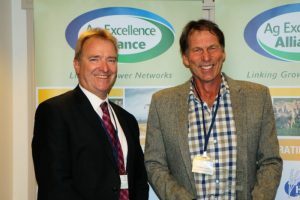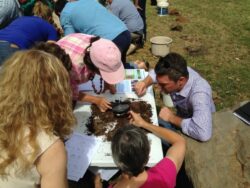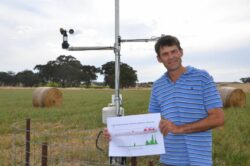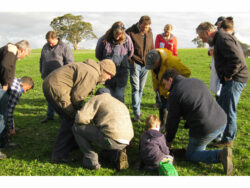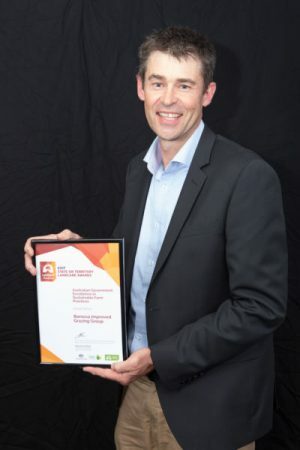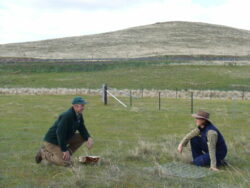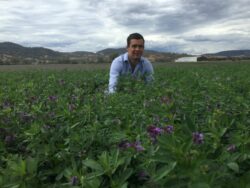Latest News & Resources
Ag Ex Grower Group Award
The highly valued Ag Ex Alliance Grower Group Award, sponsored by Primary Industries and Regions SA (PIRSA), went to Barossa Improved Grazing Group (BIGG) for putting forward an educational proposal to benefit their members, the local and broader agricultural communities.
Livestock containment areas, more than a drought measure
Paddock feed is becoming limited in many areas of the Barossa due to a drier than average summer and recent hot weather, leaving livestock producers looking for alternative options for feeding their stock.
The Barossa Improved Grazing Group (BIGG) have created a video guide with livestock consultant Hamish Dickson to help producers design and manage an effective containment lot.
Resilience focus for Barossa conference
SOIL health is key to improving the resilience of grazing businesses, according to agroecologist and soil fertility specialist David Hardwick.
Mr Hardwick says more and more people are coming to realise the importance of soil function for sustainability and resilience to climate change.
Mr Hardwick, who will speak at the Barossa Improved Grazing Group’s Building Resilience Conference on Thursday, February 22, says top soil is the second most important asset in any farm business, second only to people.
Indian summer creates flystrike concerns for SA
Sheep producers are being urged to be on high alert for blowfly strikes in their flocks, with warm, humid weather creating ideal conditions.
Both Elanco and Coopers Animal Health have reported a jump in sales of preventative products offering three months protection or more against flies.
Working together creates ‘BIGG’ outcomes
The Barossa Valley in South Australia is renowned for its food, wine and heritage, which stems from generations of vibrant farming communities learning and working together.
The Barossa Improved Grazing Group (BIGG) has applied the same approach to improving on-farm productivity and achieving natural resource management outcomes. With a common focus on sustainable grazing practices, BIGG links five different farming groups including sheep, beef, dairy and two local agricultural bureaus with a common focus on sustainable grazing enterprises.
BIGG win for Barossa farmers
The Landcare Association of SA Conference and Awards Dinner in Clare last week was a fruitful occasion for Barossa farmers and Landcarers.
The Barossa Improved Grazing Group was one of the lucky winners at Tuesday night’s awards presentation, held at Clare Golf Club.
BIGG picked up the gong in the Australian Government Excellence in Sustainable Farm Practices Award after being selected as one of three finalists.
BIGG wins state landcare award!
The State Landcare Awards were held in Clare on 12th September 2017 where BIGG won the Australian Government Excellence in Sustainable Farm Practices Award.
The award recognises an ‘individual, group or organisation that has demonstrated excellence and leadership in implementing integrated land management practices to a farm property or properties that protect soils, water and vegetation’.
Managing the fire recovery process
An extensive monitoring program, native plant identification, and soil testing has helped producers across Eden Valley, Hutton Vale, and areas near the Barossa Valley in South Australia recover and sustainably manage native grass pastures that are critical within their livestock grazing systems.
James Graetz – SA citizen of the year & Mid-Murray council citizen award
In January 2017, Keyneton farmer James Graetz was awarded the SA citizen of the year in a ceremony at Government house in Adelaide. He also received the Mid- Murray council citizen award. James is a long time member of the Angaston Bureau, including recently serving as chairperson.
Lucerne trial results highlighted at Barossa conference
LUCERNE was found to be more tolerant than expected from previous studies, to highly acidic soils in a recent project completed by South Australian Research and Development Institute’s (SARDI) principal research scientist Dr Alan Humphries.

